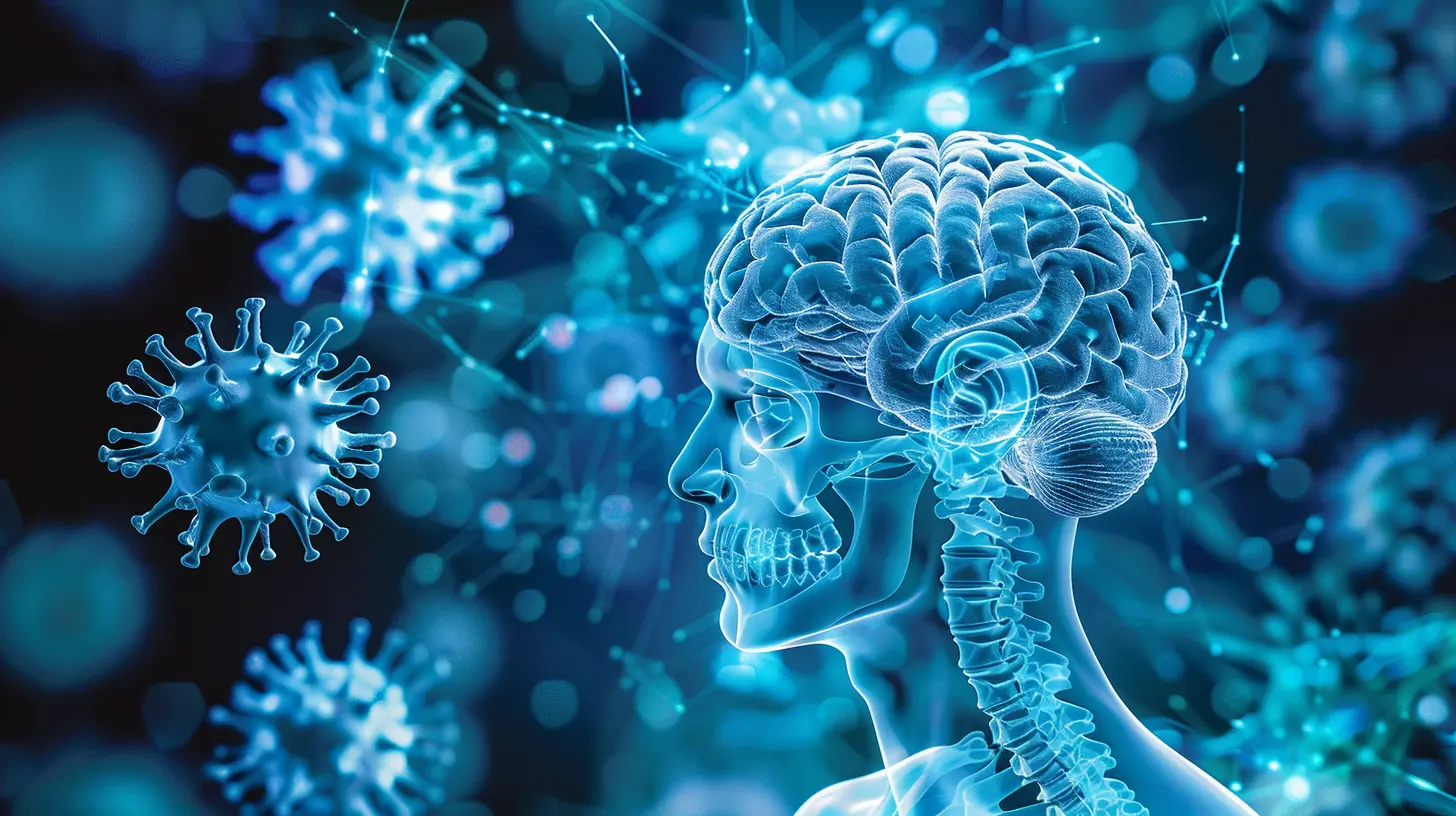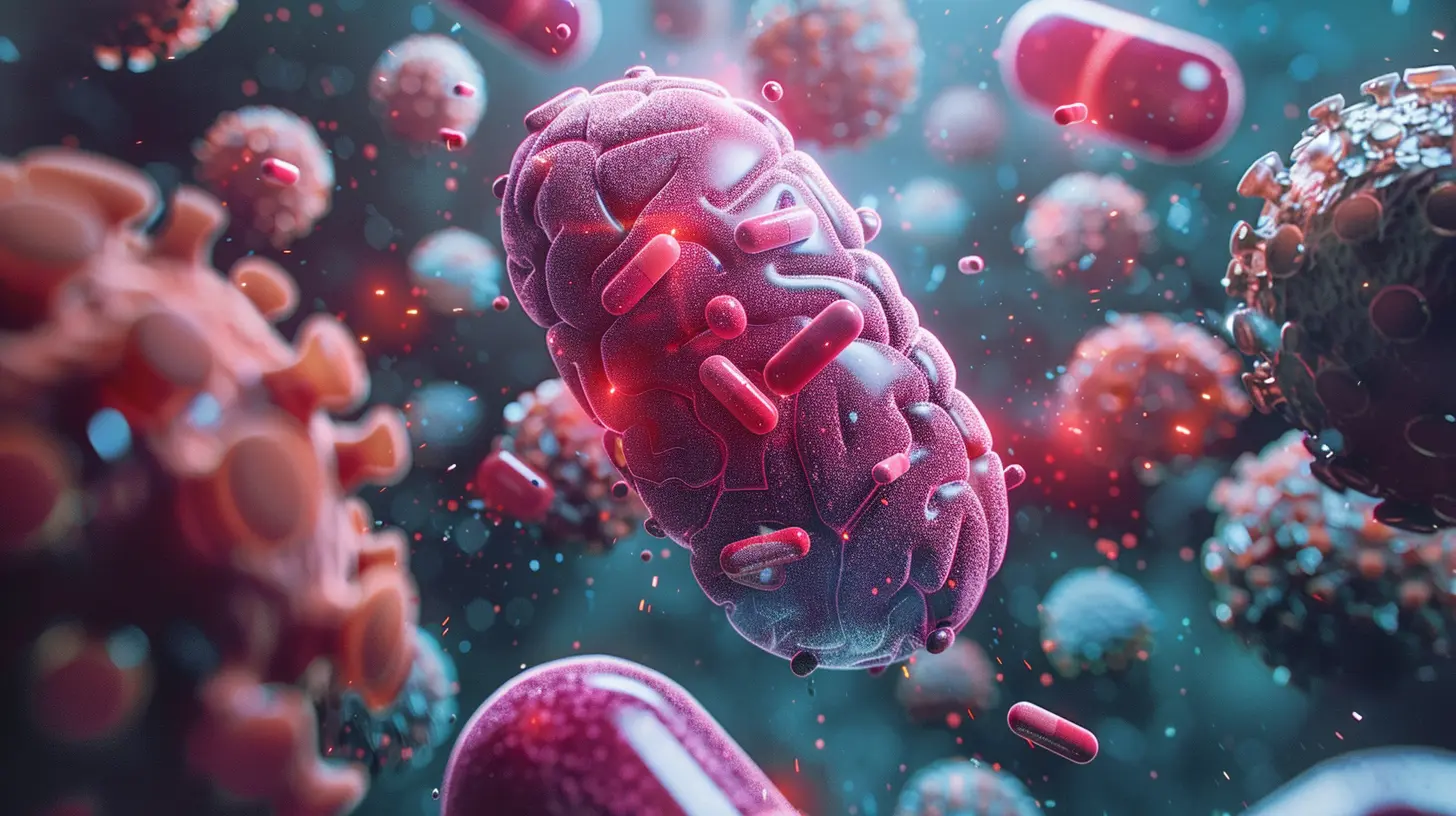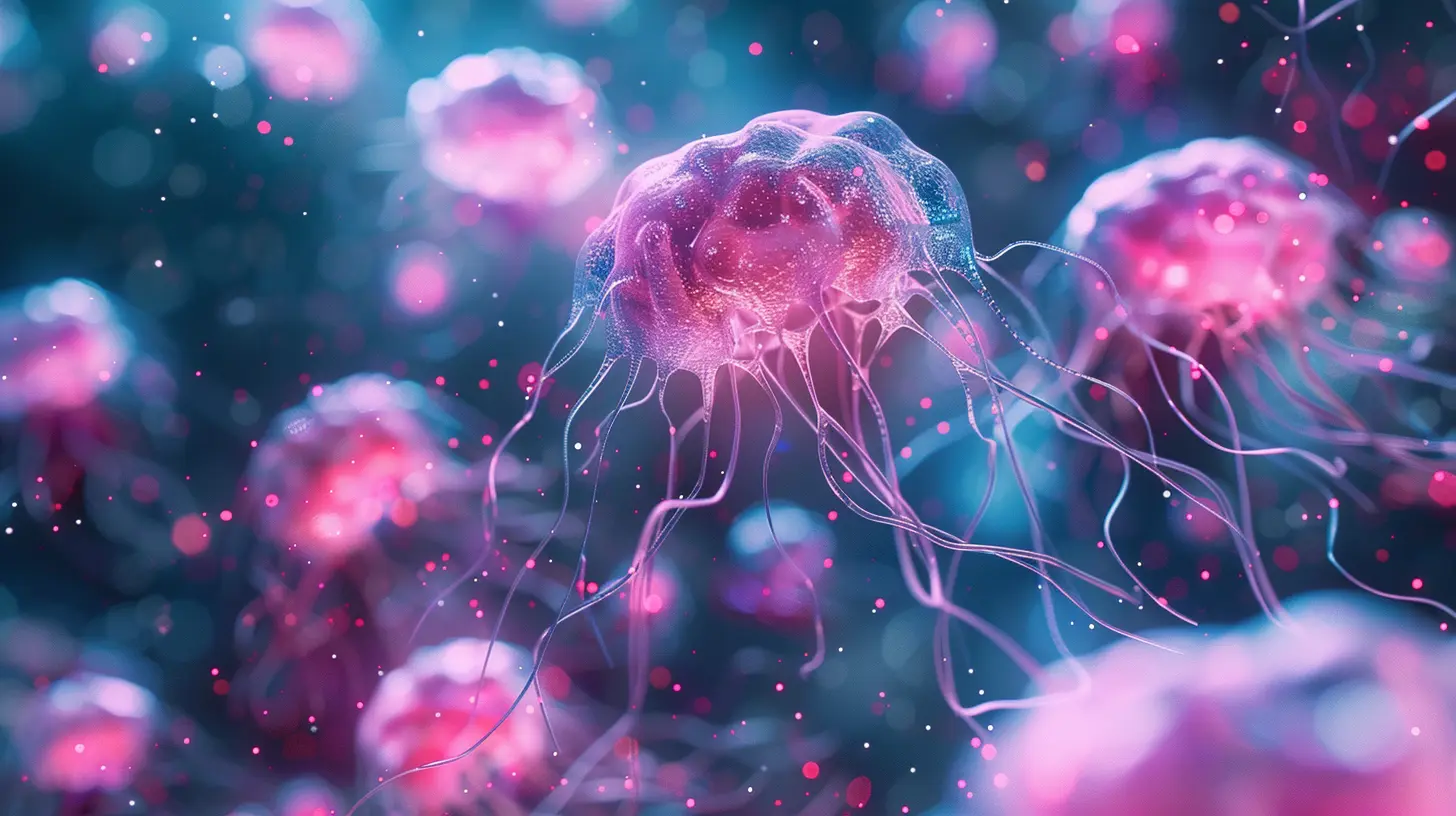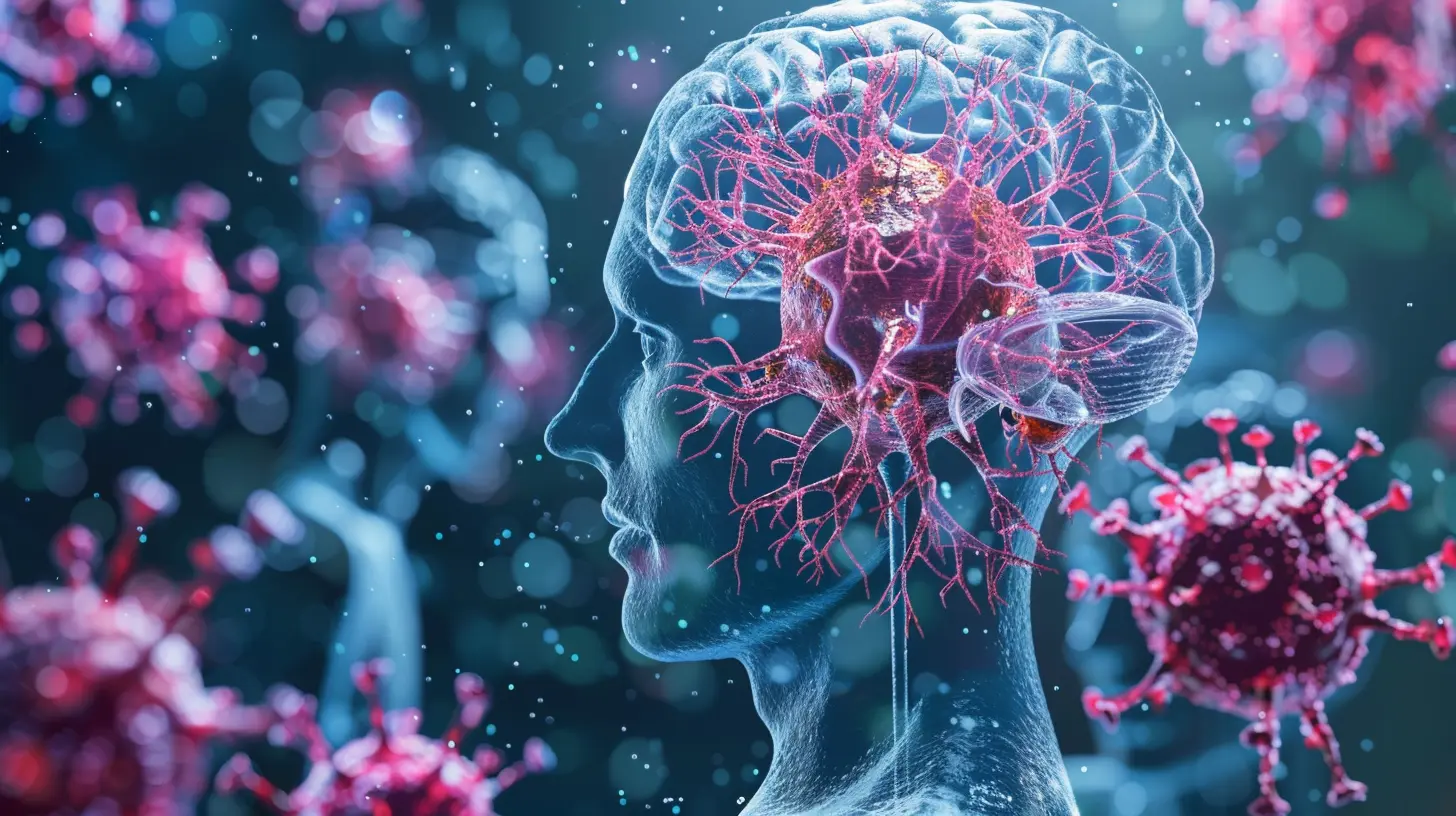The Role of Probiotics in Brain Health
21 September 2025
Imagine if the secret to sharpening your brain could be found not in a book or a supplement, but deep in your gut. Sounds like science fiction, right? But guess what—there’s growing evidence that tiny living organisms called probiotics might be quietly shaping your brain’s health, mood, and even your memory. Welcome to the fascinating world of the gut-brain connection—a topic that’s both mysterious and mind-blowing.
Let’s take a deep dive into it, shall we?

What Are Probiotics, Anyway?
Before we start talking brains, let’s clarify what probiotics are. These are live microorganisms—mainly bacteria and sometimes yeasts—that are good for you, especially for your digestive system. You’ve probably seen them listed on yogurt containers or in supplements. But these guys aren’t just passengers in your gut—they’re active team players.Think of probiotics as your internal housekeepers. They balance your gut flora, help break down food, fight off harmful bacteria, and produce essential nutrients. But recently, researchers have started connecting the dots between probiotics and something a little farther north: your brain.

Your Gut Has a Brain of Its Own (Sort of)
Okay, hold up. Did you know your gut has its own nervous system? It's called the enteric nervous system (ENS), and it’s often referred to as the "second brain." We’re talking around 100 million neurons lining your gastrointestinal tract. That’s more neurons than in your spinal cord!This “second brain” doesn’t do calculus or write poetry, but it does communicate directly with your real brain. They chat constantly via the vagus nerve, hormones, and a cocktail of chemical messengers. And guess what regulates a lot of that chatter? Yep—those friendly little bacteria.

The Gut-Brain Axis: Your Body’s Secret Hotline
The gut-brain axis is kind of like having Wi-Fi between your brain and digestive system. It's a two-way communication superhighway that allows your gut to influence your mood, memory, and even mental clarity.Now here’s where probiotics enter the scene—like secret agents working silently behind the scenes. Certain strains of probiotics can produce neurotransmitters like serotonin (your happy chemical), GABA (a calming agent), and dopamine (the reward messenger). Some scientists even believe that your gut produces up to 90% of your body’s serotonin. Mind blown?
So, essentially, if your gut is out of whack, it can throw your whole brain chemistry off balance.

Mood Swings? Anxiety? Maybe Check Your Gut
We’ve all had that "gut feeling," right? Turns out it’s more than just a figure of speech.Research is uncovering strong links between gut health and mental health. Some studies have found that people suffering from depression or anxiety often have a different mix of gut bacteria compared to those who don’t.
One 2016 meta-analysis showed that probiotic supplementation significantly reduced symptoms of anxiety and depression. In simple terms—feeding your gut the right bugs might just help brighten your mood. Not bad for something you can scoop onto your granola.
Can Probiotics Really Make You Smarter?
Hold on—we’re not saying probiotics are a substitute for studying or challenging brain games, but there is promising research showing that they can support cognitive function.A 2015 study published in Frontiers in Aging Neuroscience showed that older adults with mild cognitive impairment improved their learning and memory after taking a probiotic-rich milk for 12 weeks. The brains of the participants on probiotics literally performed better than those who weren’t taking them.
Of course, we're still in the early days here. But those early signs are pretty encouraging, aren’t they?
Probiotics and Neuroinflammation: The Hidden Battle
Let’s talk inflammation—your body’s natural response to injury or infection. In the brain, inflammation is a silent saboteur linked to many mental health issues, including Alzheimer’s, depression, and Parkinson’s disease.Now, what’s inflammation doing in a brain article? Good question.
Studies suggest that gut bacteria—especially when they're not playing nice—can send disruptive messages that trigger inflammation. This is called "neuroinflammation." Probiotics, on the other hand, are like diplomats calming the chaos. They help strengthen the gut barrier, reduce the release of inflammatory signals, and may even “train” the immune system to chill out.
The Gut Microbiome: A Unique Ecosystem
Here’s a fun fact: your gut has more bacteria than your body has human cells. Crazy, right?This bacterial world is called your microbiome, and it’s as unique as your fingerprint. Every person’s microbiome is slightly different, and this diversity affects everything—from digestion to immune response and, yes, to brain health.
Feeding your microbiome the right probiotics is like planting the right seeds in your garden. With the right balance, your gut can help nourish not just your body, but your mind, too.
Best Probiotics for Brain Health
Now, not all probiotics are created equal. When it comes to brain health, science is zooming in on specific strains that show the most promise.Here are a few rockstar strains to look for:
- Lactobacillus rhamnosus: Known for reducing anxiety-like behavior.
- Bifidobacterium longum: Shown to improve memory and reduce stress.
- Lactobacillus helveticus: Known to boost mood and lower cortisol (stress hormone).
- Bifidobacterium breve: Shown to support brain development and cognition.
Note: Always talk to your healthcare provider before starting a new supplement regimen—especially if you have health conditions.
How to Get More Probiotics (Without a Pill)
Sure, you could pop a supplement. But why not go the delicious route? Many foods are naturally packed with probiotics and taste amazing.Here’s a list to get your gut smiling:
- Yogurt (with live cultures)
- Kefir – think yogurt’s tangy, drinkable cousin
- Sauerkraut – fermented cabbage, but way more fun than it sounds
- Kimchi – spicy Korean delight
- Miso – a savory soup staple in Japanese cuisine
- Kombucha – fizzy, fermented tea with a cult following
- Tempeh – a fermented soybean product with a nutty flavor
Adding these to your grocery list could be the easiest brain hack you ever tried.
Prebiotics: The Food for Your Probiotics
Okay, so you’ve got your probiotics. But they need food to thrive. That’s where prebiotics come in—the dietary fibers that feed your friendly bacteria.Load up on:
- Bananas
- Onions
- Garlic
- Leeks
- Asparagus
- Oats
Think of prebiotics as fertilizers for your gut garden. The more you nourish the soil, the better your mental flowers will bloom. 🌼🧠
The Future of Brain Health is in Your Belly
The connection between your gut and brain is one of the most exciting frontiers in science today. We’re talking about potentially treating or preventing conditions like depression, anxiety, Alzheimer’s, and even autism—all through microbial manipulation.Imagine a future where doctors prescribe a custom blend of probiotics to improve your mood or memory. That might sound futuristic, but some clinics are already testing this approach.
While we’re still uncovering all the puzzle pieces, one thing is clear: taking care of your gut isn’t just about avoiding bloating or indigestion. It could be the key to keeping your mind sharp, your mood stable, and your brain humming well into old age.
So, Should You Start Taking Probiotics?
In a word: maybe. It really depends on your current health, diet, and whether you’ve got any gut or mood issues already.But one thing’s for sure—supporting your gut health through a balanced diet rich in probiotics and prebiotics is a smart move. Not just for your digestion, but for your brain, your focus, and even your peace of mind.
Because in the mysterious, interwoven world of the human body, sometimes the road to mental clarity doesn’t start in your mind—it starts in your stomach.
all images in this post were generated using AI tools
Category:
Brain HealthAuthor:

Angelo McGillivray
Discussion
rate this article
1 comments
Ella McRae
Who knew gut health could boost brainpower? Next time I forget where I left my keys, I’ll just blame it on my probiotics taking a vacation!
September 30, 2025 at 2:42 AM

Angelo McGillivray
Haha, great point! It's fascinating how gut health plays such a key role in brain function. Probiotics might just be the secret weapon for a sharper mind!


